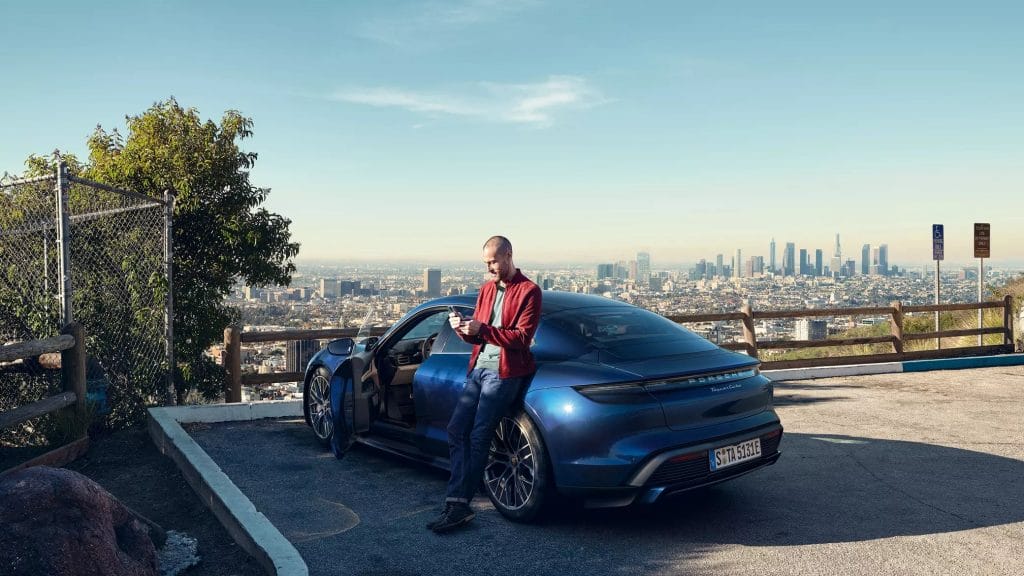Plus, we give Masala’s own take.
By Shaan Bajaj
A big part of being a Bangkokian is sitting in traffic, or planning your day around it. In the last year, you may have noticed the rise of Electric Vehicles (EVs), from the rare imported Tesla (before they opened their showroom) to multiple Chinese brands. One of the reasons for this shift is the country’s push for 30 percent of the vehicles made in Thailand to be zero-emission vehicles by 2030, also known as the 30@30 policy.
The obvious benefits of switching to a fully electric or hybrid vehicle is the reduction of petrol and diesel usage, which contribute greatly to climate change. This seems to be a sentiment the greater population agrees with, as many new EV brands are dominating sales, such as MG, BYD, and Tesla, the latter of which had over 4,000 orders placed within 24 hours of launching in Thailand.
Masala shares the top ten models to look out for, while four car enthusiasts from the community share their thoughts on EVs.
MASALA’S 10 FAVOURITE ELECTRIC CARS FOR 2023:
LUXURY:
• Mercedes Benz EQS 500 4MATIC AMG Premium; Driving Range: 702km
• BMW i7 xDrive60 M Sport; Driving Range: 590-625km
• Porsche Taycan GTS; Driving Range: 500km
PREMIUM:
• Hyundai Ioniq 5; Launching in Thailand mid-2023
• Volvo XC40 Recharge Pure Electric; Driving Range: 418km
• Tesla Model 3 & Tesla Model Y
• BYD Atto 3 Extended Range; Driving Range: 480km
• Toyota bZ4X; Driving Range: 411 km
UNDER THB 1 MILLION:
• ORA Good Cat GT; Driving Range: 480km
• MG ZS EV; Driving Range: 403km
HESAM KAZEMINI
Drives: a BMW 330Li, a petrol car
I was an early adopter of hybrid vehicles, back in 2012. Whilst I enjoyed the near-silent electric whir at low speeds and punchy motors, I dreaded the drone of the CVT gearbox pulling on the engine at a constant high rev; it’s no fun at all. For my latest car, I figured that since all the manufacturers are pledging to go electric by 2025, this was my last chance to buy a proper petrol car that blasts what I can only describe as music through its turbo and exhaust pipes. Whilst electric technology is still new, petrol engines are the best and most efficient they have ever been. I am able to cover 800km on a full tank if I drive in ECO mode with a light foot on the throttle.
I like EVs though, they are simple machines. No gearbox, less mechanics, near-silent, and no unnecessary vibration or heat created from the internal combustion engine. They’re suitable for the city, and other benefits include instant torque from the motors when summoned, pushing you back in your seat as the car accelerates. However, I enjoy driving long distance, on some days long enough to fill up a tank twice in one day. That is not possible in an electric car.
Assuming budget is not an issue, the models I am most interested in are the Porsche Turbo Taycan Gran Turismo, BMW iX, Tesla Model X, Mercedes Benz EQS, Audi Q4 E-tron, and the Ford Mustang Mach E.
EV technology is still new and requires development, especially in battery technology. By 2025, we will see greater improvements and a cost reduction. The electric car is highly welcome, considering the environmental factors, reduced noise, and pollution. However, we do not know how the electricity is produced. Is it coming from a renewable source? Only then can it be considered green. In most cases, it is coming from coal or gas.
Thailand’s infrastructure seems to be ahead. I see chargers everywhere. I recently rented an Audi Q4 E-tron when visiting Italy, and with range anxiety, complications of finding high voltage chargers, and compatibility issues. Chargers were out of the way and I spent an unnecessary amount of time waiting.
GAVIN NAZARETH
Drives: a Ford Everest, a diesel car
I would eventually make the switch to an EV but not right now. The models I am interested in include the Tesla and Volvo XC40 Recharge. EV technology has a lot of promise, but there are pros and cons. The obvious benefits are: reduction of greenhouse gas emissions and dependency on fossil fuels, lower operating costs, quiet operation, instant torque, and an improved driving experience.
However, EVs suffer from a limited driving range, underdeveloped charging infrastructure and higher upfront costs. Additionally, battery disposal can be harmful to the environment if it is not disposed of properly. Countries lack proper regulations and infrastructure to recycle used EV batteries. They need to invest in development and
implementation of these systems to ensure that the growth of the EV industry does not come at the cost of the environment.
EV Infrastructure in Thailand is still in the early stages of development; some cities have charging stations available but it is not as extensive as other countries. To support the growth, Thailand needs to invest in building charging infrastructure, including more charging stations, and improving accessibility for owners. They also need to incentivise the use of EVs through tax breaks or subsidies, and provide education and support to help people make the switch.
GURPREET ANANDSONGWIT
Drives: a BMW 530e M Sport Hybrid, a semi-electric car
I think EVs are a good move for our future; it is eco-friendly, quiet, and more sustainable. Personally, I am interested in the speed and torque of a vehicle, and the Tesla performance vehicles are probably the best available in the current market. I am eyeing the Tesla Model Y performance, it provides the acceleration of a super car along with the much-needed practicalities and comfort of a regular car.
I am currently using a semi-electric car and I like the flexibility it offers, such as not having to worry about finding charging stations on long drives. However, I do feel that Thailand is expanding its charging stations and EV-supportive infrastructure drastically. Just last month, I was surprised to see so many EV charging stations on my way to Khao Yai. You can also find them at hotels, malls, restaurants and I would consider switching to an EV sometime very soon. I feel it is a great shift towards the future of the auto industry.
SUPPHARAJ ‘RAJ’ CHOKWONGANUN
Drives: BMW 7 series and a Benz GLE 250, both diesel engines
I like EVs, they generate zero exhaust emissions and acceleration is quick and smooth since there are no gears to worry about. As soon as you accelerate, you are at full power. It is nicer to handle and less likely to roll. You have the advantage of waking up to a ‘full tank’ after charging your vehicle overnight. The average cost of oil is 3 Baht/
km while the average cost of EV charging is 0.30 Baht/km and it requires much less maintenance. Overall, they are green, clean, fast and beautiful cars to drive with a range of nearly 500 km.
I am interested in many but I like the Benz EQS, Porsche Taycan, and the Tesla S. Currently the lack of availability of luxury models and their higher price point in comparison to international prices is what is stopping me. Additionally, the cost of maintenance service, and lack of charging stations too. However, the future is bright. In
2020, about 2,000 EVs were sold in the country and the figure will only grow exponentially by 2025, with an estimate of 12,500 units and close to THB 30 billion.
LOCAL INCENTIVES, SUBSIDIARIES, AND DEVELOPMENT TO AID THE GROWTH OF EVS:
• The EV Board has recently agreed to lower the excise tax on EV batteries from 8 percent to 1 percent.
• Companies producing EVs of all types can take advantage of a 3-11 year tax holiday, offered by Thailand’s Board of Investment (BOI), who are also offering investment incentives for EV infrastructure such as charging stations.
• PTT is collaborating with Foxconn to introduce a clean energy vehicle alongside turning its focus on battery research and development, and an EV car rental platform.
• PTT and Retail Business Plc (OR) aims to introduce 7,000 EV charging outlets by 2030. As of September 2022, there were 2,572 charging plugs in the country.











